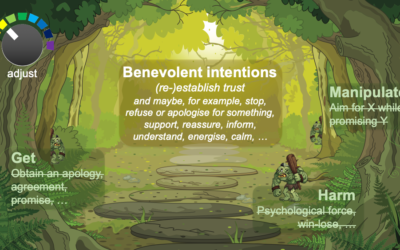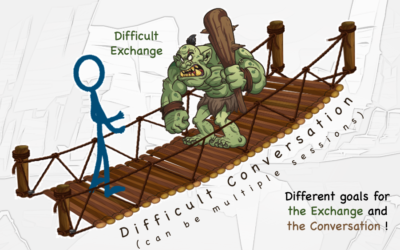« Harry, do you know how this spreadsheet’s meant to work? ». It seems like a harmless question, but it’s really the beginning of a dangerous spell.
Innocent in the ways of the Dark World, Harry responds, « Sure, what’s up? », then proceeds to spend the rest of the afternoon fixing someone else’s problem.
But Harry’s no fool and quickly learns from his mistake. The next day, when he hears, « Hey, Harry, I reckon there’s a bug in your Excel script », he replies, « Really? And what would you like to have happen? ». This is the counter-spell, and it can save you an incredible amount of time!
When faced with someone who is trying to pass their problem onto you (consciously or not), immediately switching the focus from the problem to the outcome that they are trying to achieve is a great way to be helpful without getting too deeply involved.
Taking on work that other people should be doing is one of the most common ways of getting overloaded. It’s a danger for everyone, but particularly for leaders since their collaborators naturally turn to them for assistance. When this happens, you need to quickly decide if you’re going to give direct help or not. In other words, you need to choose between a directing and a coaching stance (taking on others’ work is an extreme form of directing – you attend to every detail and do it!).
Assuming that you want your collaborator to solve their own problem – to keep responsibility for it and to develop their autonomy – then the coaching stance is the one to go for. In this case the question « And what would you like to have happen? » gives you a great way to switch to that mode of operation. Having done so, you then help the other person elaborate their desired outcome and, by the time this is done, they will probably have some new ideas on how to move forward.
This magic spell is just one from a box of tricks called Clean Language and it’s the first one used in the Five-Minute Coach system. I recommend that leaders of all sorts take a look at this excellent tool, developed by Lynne Cooper and Mariette Castellino with the needs of people coaching close colleagues in mind. Not only does it show a way to avoid taking on other people’s issues, it also provides a structure for brief coaching sessions between people already working together (a difficult context for coaching, since it’s often hard for the coach to stay out of the problem being dealt with).
The Five-Minute Coach is just one of the tools that I use regularly in consulting and training work with customer-facing teams. You can find out more from this short video and these recent posts on the use of individual leadership skills in Technical Sales:






